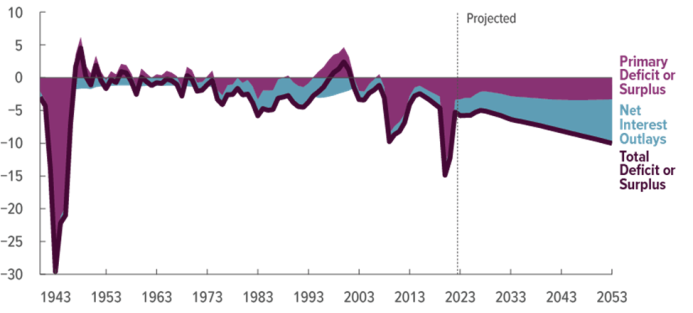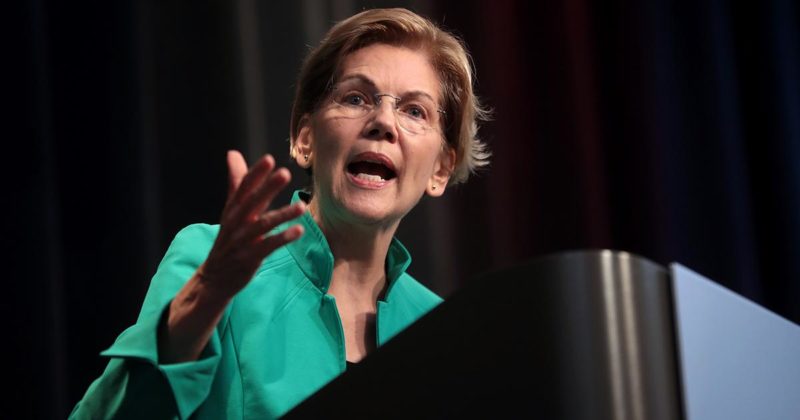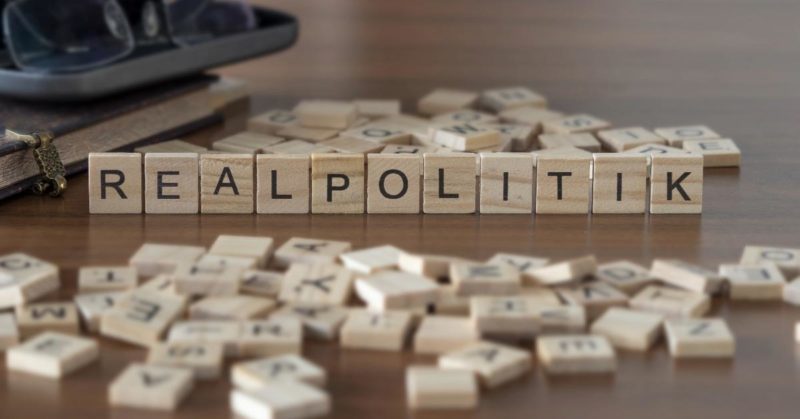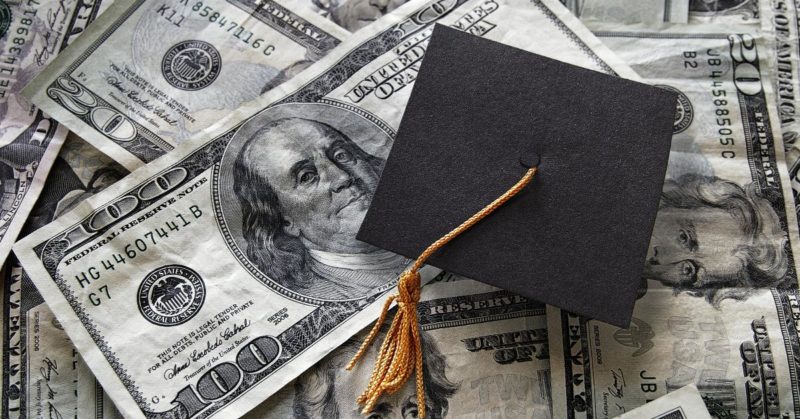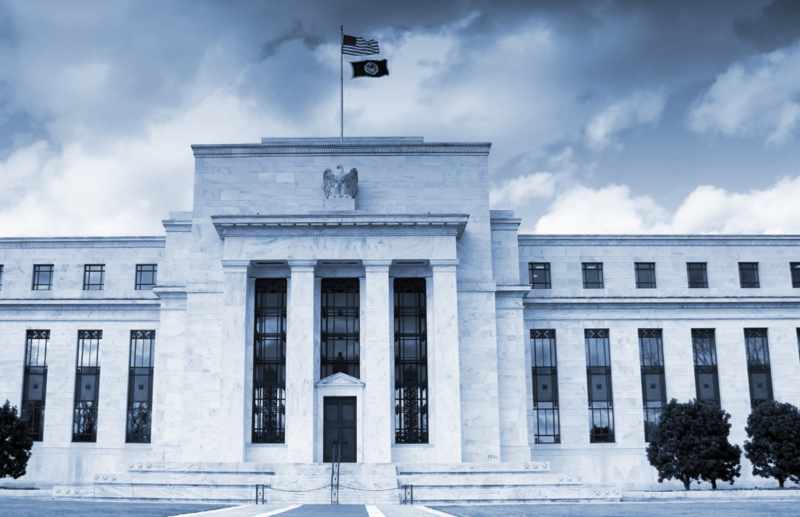Category Archive: 6b.) Mises.org
As the US Treasury Runs Out of Creditors, Its Options Dwindle
Are the chickens coming home to roost for the US Treasury? As Ryan McMaken noted in a recent Mises Wire article, the United States is in a debt spiral and there’s no easy way out.
The problem is multifaceted, but the origin is profligate government spending. While it typically spikes during crises, spending is increasing at an alarming rate even outside of crisis periods. And tax revenues are not keeping up, which means ever-deepening deficits....
Read More »
Read More »
Time Preference Is the Key Driver of Interest Rates
Forget the other mainstream explanations for interest. Time preference explains this phenomenon and gives a true picture of why interest exists in the first place.
Original Article: Time Preference Is the Key Driver of Interest Rates
Read More »
Read More »
Should We Embrace the Stateless Roman Political Thought?
The traditionalist author Álvaro d’Ors emphasized in his work that the political thought of Rome was essentially stateless as it had a personalistic character. In contrast, Greek political thought had a territorial focus, giving rise to the idea of the state. Intellectuals who created and legitimized the idea of the state in modernity drew from Greek political thought. To abolish the state, we need to investigate what both the Greeks and Romans...
Read More »
Read More »
Statist Ideology and War: Israel versus Hamas
As this author previously has noted, the ideology of statism is responsible for much of the violence that plagues the world. We see this played out in Israel's aggressive retaliatory attacks in Gaza in response to the October 7 killings by Hamas.
Original Article: Statist Ideology and War: Israel versus Hamas
Read More »
Read More »
Progressive Interventionism Is Ruining American Healthcare
Two weeks ago, I wrote about the problems with Joe Manchin’s argument that Congress needs to reject the “extremism” in its ranks if it’s ever going to solve the many problems facing Americans.
I argued that the opposite is true. That Congress is almost entirely unified behind a specific pace of progressive interventionism where the predictable consequences of previous interventions are perpetually used to justify more intervention. In this cycle,...
Read More »
Read More »
There’s No Easy Way Out of This Debt Spiral
The new problem we now face arises from the fact that huge deficits are only manageable so long as interest rates remain very, very low.
Original Article: There's No Easy Way Out of This Debt Spiral
Read More »
Read More »
The Power of Austrian Causal-Realist Analysis
For many economists, economic growth is a mystery. By “economic growth,” Shawn Ritenour has principally in mind economic progress in the less developed countries, but his recipe for growth applies universally. Why is growth a mystery? Ritenour explains why in this excellent book: “Indeed, a major reason modern macroeconomics has not solved the mystery is that as a whole—dare I say, in the aggregate—its analytical approach fosters neither asking nor...
Read More »
Read More »
Remembering the Great Henry Hazlitt on His Birthday
November 28 marks the 1894 birth of one of American history’s most prolific public intellectuals—Henry Hazlitt. According to Llewellyn Rockwell, Hazlitt “was familiar with the work of every important thinker in nearly every field” and “wrote in every important public forum of his day.” His published work as a journalist, literary critic, philosopher, and economist ran to roughly ten million words before his death in 1993, including perhaps the most...
Read More »
Read More »
October’s Sobering Jobs Report Adds to Mounting Bad Economic News
Data on employed persons, wages, and other measures point to trouble ahead in an economy already strained by growing bankruptcies, mounting debts, and disappearing savings.
Original Article: October's Sobering Jobs Report Adds to Mounting Bad Economic News
Read More »
Read More »
Arkansas’ Attack on Chinese-Owned Property Is Reckless and Crony-Driven
Citing national security concerns, Arkansas ordered Chinese company Syngenta to sell off the 160 acres of farmland it owns in the state. The national security concerns are, as will be demonstrated, bogus; however, there may be more crony motivations for this order as well.
An article of mine published in July 2023 by the Libertarian Institute addresses these national security concerns. Walter Block also recently published a piece examining the...
Read More »
Read More »
The “Climate Emergency”: Fueled by 21st Century Marxism
The eternal “climate emergency” is upon us. While doomsday is said to be around the corner, the reality is that the only thing rising is the level of government control.
Original Article: The "Climate Emergency": Fueled by 21st Century Marxism
Read More »
Read More »
After Ukraine, Realpolitik Will Be the New Interventionist Status Quo
From the onset of the current Israeli-Hamas conflict, the statements from the Joe Biden administration and Congress were crystal clear: America is the indispensable nation, and we’re rich and powerful enough to be able to afford two wars to guarantee the safety of the world. Even with the displeasure over an unstoppable growth in debt and a declining economy, the message to both the domestic and international audiences is DC will get involved...
Read More »
Read More »
The Federal Reserve is Running Losses. Does This Cost Anyone Anything?
The new problem we now face arises from the fact that huge deficits are only manageable so long as interest rates remain very, very low.
Original Article: The Federal Reserve is Running Losses. Does This Cost Anyone Anything?
Read More »
Read More »
Student Loans: The Continuing Crisis That Is Getting Worse
The leviathan does not rest in pursuing free universities, creeping ahead unchecked by either reason, law, or accounting principles. Why is student assessment of their federal-debt-financed degrees so low? Why are 26 percent of past payments delinquent? More than 50 percent of students agree that they either studied the wrong major or wasted time and money. Less than half have found work in their major field of study.
Public dialogue is lured into...
Read More »
Read More »
Israel Isn’t the Brilliant Friend of Freedom the Beltway Claims It to Be
While Israel receives praise for being a "democracy" in the undemocratic Middle East, its surveillance policies mirror those of China, which is decidedly not democratic.
Original Article: Israel Isn’t the Brilliant Friend of Freedom the Beltway Claims It to Be
Read More »
Read More »
Killers of the Flower Moon Is about Government Failure
The newly-released movie "Killers of the Flower Moon" depicts what happens when politically-connected people can use the state to carry out nefarious deeds. Unfortunately, government failure is one lesson that is sure to be lost here.
Original Article: Killers of the Flower Moon Is about Government Failure
Read More »
Read More »
Is Migration a Tool of the Consumptive Class?
An unfortunate consequence of increased wealth is the growth of the parasitic consumptive class of political and cultural elites. Labor migrations often follow in the wake of damage that elites do.
Original Article: Is Migration a Tool of the Consumptive Class?
Read More »
Read More »
Jim Chanos and Stock Markets
In this week's episode, Mark looks at the implications of famed investor Jim Chanos shutting down his hedge fund which specialized in shorting stocks. The closure comes as stock markets in the US hit all time record highs. Mark frames these two events in light of the Austrian Theory of the Business Cycle.
Be sure to follow Minor Issues at Mises.org/MinorIssues.
Get your free copy of Murray Rothbard's Anatomy of the State at...
Read More »
Read More »
Overcoming Chinese Communist GDP Myths
In March, at the National People’s Congress, Beijing set its annual gross domestic product (GDP) growth target. Since 1985, in every year but one, China has met or exceeded its official projections, raising doubts about whether or not Beijing’s claims of rapid growth can be believed. The New York Federal Reserve issued a report in 2020 that challenged the numbers, saying that China’s GDP growth chart was too smooth for the data to be authentic....
Read More »
Read More »
Fed Rate Cuts Will Not Save The Economy
Market implied Fed Funds rate discount a string of cuts starting in January 2024 and culminating in a 4.492 percent in January 2025. These expectations are based on the perception that the Federal Reserve will achieve a soft landing and that inflation will drop rapidly. However, market participants who assume rate cuts will be bullish may be taking too much risk for the wrong reasons.
The messages from the Federal Reserve contradict the previously...
Read More »
Read More »









